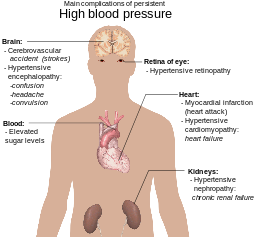Whether you like it or not, a key ingredient in many restaurants today is salt. Since everything contains a bit of salt, what are the effects of this large intake? Let’s consider what sodium usually does in the body. The kidney usually balances the amount of fluid within the body, but sodium dilution requires a large volume of water. This strain potentially causes kidney diseases and affects the flow of blood within the body.
Constant increase of blood flow damages the cardiovascular system. The heart has to pump with more effort and the arteries and veins harden over time due to constant pressure against its walls. If this occurs occasionally, it may be healthy to the body to circulate the system, but after many repetitions this may result in hypertension. This high blood pressure may lead to stroke, heart attack and various other detrimental conditions.
Does this mean we should abandon consuming salt? Not necessarily.
A lack of sodium in the body can cause as much harm as excess salt. Hyponatremia is a condition where one feels a lack of energy, headaches, nausea and other similar symptoms due to low salt levels. Salt is an essential mineral to the body. It helps with muscle functions, nerve transmissions and regulates body fluid levels (kidney). Sodium and Potassium also regulate the body’s blood pressure and if there is a lack of sodium present to regulate potassium levels, the body may experience mild hyperkalemia.
Excessive salt consumption can lead to high blood pressure while lack of salt may lead to hyponatremia. It is normal to continue eating salty foods but it is best to attempt to follow health guidelines.
-Carswell Liu




